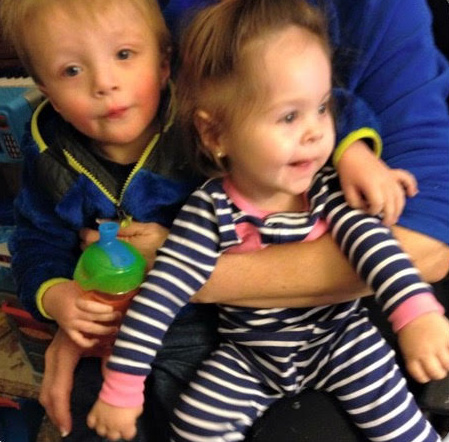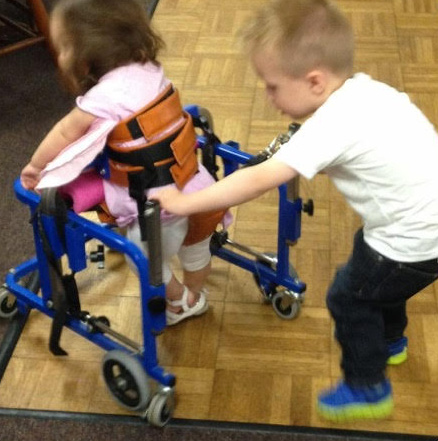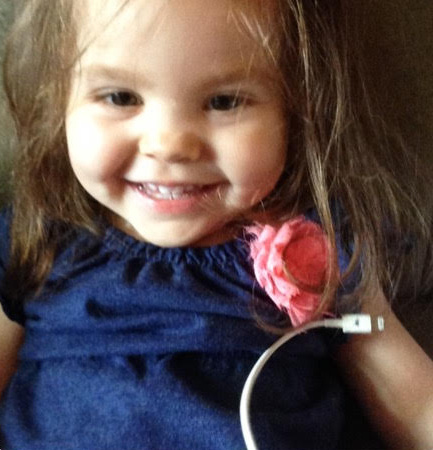We arrived at the hospital at 6 a.m. for surgery. My daughter was having tubes placed in her ears. Though a routine procedure, I was still nervous. I hate the idea of general anesthesia anywhere near my daughter.
The pre-op nurse, Mary, walked in to ask the typical pre-surgical questions. She had a pleasant face and her hair and scrubs were meticulous. She looked like the type of friendly, calming nurse you’d want to see before a procedure. She started to ask regular questions at first, the need-to-know kind. What type of medication does my daughter take and what milligram? Then Mary decided to go beyond the necessary questions.
“Your daughter doesn’t eat anything? Is that normal for her condition? Well, does she walk? Does she talk? She doesn’t sit? Was she breech or something? You’re going to have a run for your money since your daughter is special.”
As an adult and a registered nurse, her words not only devastated me, but her ignorance and naivety utterly shocked me. How did she not know as a nurse that cerebral palsy is an umbrella term and affects all children and adults differently?
If I wasn’t in such a state of shock and devastation from her words, I would’ve told her about what it means to show compassion and acceptance — specifically, the acceptance my family has learned by watching my daughter, Estella, with her cousin, Trent.
While in labor with my daughter, she stopped breathing. I was brought to the OR for a crash C-section. She came into this world and was resuscitated after 17 minutes. The NICU critical care team came to the hospital I delivered at to pick her up and start a high-tech cooling process to try to prevent any further brain damage she sustained due to her lack of oxygen. Estella was in grave condition and on a ventilator. I felt like my heart had stopped beating when hers did.
My sisters traveled immediately to the hospital. One flew in from California with her 3-month-old son, Trent, while my other sister, pregnant with her second child, drove up from Philadelphia to be with me for moral support.
Our daughter was diagnosed with brain damage called Hypoxic Ischemic Encephalopathy, or HIE. The injury caused damage to her basal ganglia and thalamus, which control cognition, fine and gross motor systems of the brain and voluntary movement. She has hypotonic cerebral palsy.
Thankfully, my younger sister never went back to California and now lives close to us. Every weekend, I bring my daughter to play with her cousin, Trent.
I never understood the full innocence of children until I started seeing Trent play with Estella. Trent just turned 2 and Estella is now 22 months. The day they first met, my sister and I laid the two next to each other. Immediately, Estella reached out and held Trent’s hand. When Estella and Trent see each other, the excitement on both of their faces melts my heart.
He insists on pushing her in her stroller. He brings Estella her shoes because he knows that means we’ll put her in her gait trainer. Then the two run around together — that is, as long as he isn’t assisting her by pushing her in it. Sometimes Trent grabs his toy car and sits on it and tries to race her. Because of him, Estella has learned to run in her walker.
He tries to share his food with her because he has seen myself and my family constantly work with her on eating purée even though she has an oral aversion. He knows she has something special on her stomach (a g-tube). He tries to give her his juice, although she only likes to drink her Pediasure.
Trent hugs and kisses Estella and plays with her hair. He’s so gentle with her. If one is crying, the other one comforts him or her with hugs. He loves his “Stayduh.”
You see, by watching these two play and the general acceptance Trent shows, no words can describe the happiness I feel. I’m so proud of my sister for raising such a nice little boy. I’m so thankful for the relationship Estella has with her cousin. He’s helped her blossom by leading by example. It gives me hope for future friendships in Estella’s life.
As a parent and as a person, I believe it starts with us. It starts with what we teach our kids about differences and acceptance of those with disabilities.
I hope someday soon disability won’t be looked at as a stigma. Estella is the love of my life and my purpose. I look at her in amazement at what I helped create. She is the happiest child. We are so beyond lucky to have her.



